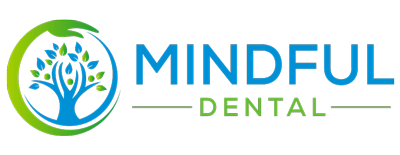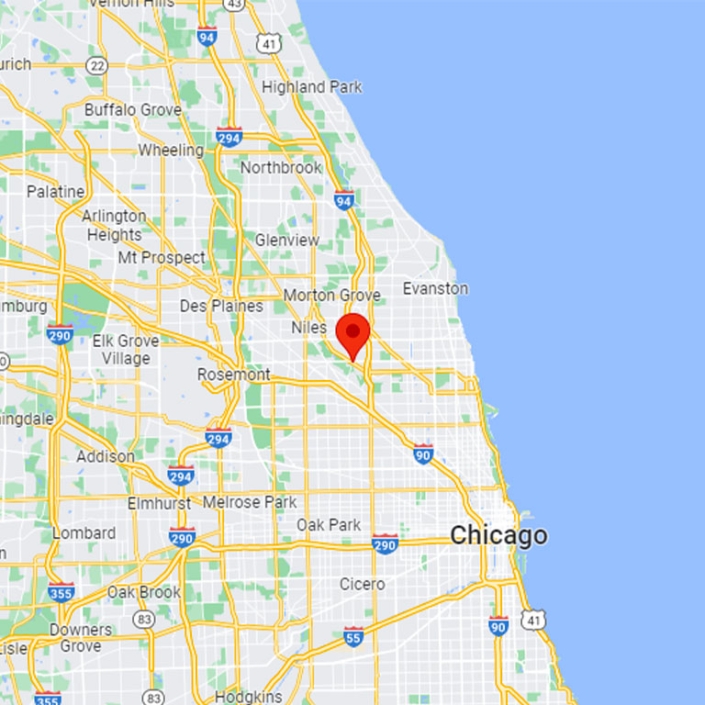Oral Cancer Screenings
 Keeping yourself healthy includes regular dental visits. Your dentist in Chicago, IL, will perform an oral cancer screening during one of your routine dental visits.
Keeping yourself healthy includes regular dental visits. Your dentist in Chicago, IL, will perform an oral cancer screening during one of your routine dental visits.
What Is an Oral Cancer Screening Exam?
An oral cancer screening exam is when your dentist looks for signs of cancer or precancerous conditions in and around your mouth and neck. Your dentist will examine your mouth, neck, throat, and the lining of your cheeks, jaws, lips, gums, and tongue. The dentist will also check the floor and roof of your mouth and your tonsils.
Oral cancer screenings in Chicago, IL, are important because they help catch cancerous conditions early. Catching and treating oral cancer early will help raise your chances of a successful treatment. It’s important to let your dentist know if you are experiencing any areas that are tender or sore.
What Happens During an Oral Cancer Screening?
Your dentist will perform all or some of the following screening steps during your oral cancer screening.
Visual Exam
This step consists of your dentist visually looking for areas of abnormal tissue in your mouth and throat.
Palpation
This step consists of your dentist using their fingers to physically feel around your face, jaw, and neck for any bumps or lumps that could be a cause for concern.
Dye Test
Some dentists use screening tools like oral cancer screening dye to help identify potential areas of concern. During this step, the dentist will use a blue dry. The blue dye will coat any lesions you have. This will help the dentist identify any areas that have a chance of becoming cancerous.
Light Test
This step consists of your dentist using a special light to help identify abnormal and potentially cancerous tissues in your mouth. The dentist will shine a light in your mouth. That light will show which tissues are abnormal. The healthy tissues will appear dark, which, in turn, will make the abnormal tissues appear white.
What Happens If the Dentist Finds Potential Cancer Cells?
If, during your oral cancer screening, your dentist finds signs of cancer, you will need additional testing to confirm the diagnosis. At this point, your dentist will send you to a specialist. The specialist will perform the following tests.
Biopsy – The specialist will remove a portion of the abnormal tissue and send it off to a laboratory for testing.
Cytology – The specialist will use a brush, stick, or piece of cotton to gather some of the abnormal cells from your mouth. A pathologist will then look at those cells under a microscope to determine if they are abnormal.
Once those tests have been completed, it normally takes between three and five days to get the results.
Alternatively, some dentists, upon finding signs of precancerous lesions or cancer, might schedule a follow-up visit with you in a few weeks to see if anything has changed. They will look to see if the abnormal area is still present and whether it has changed or grown during that time.
What Causes Oral Cancer?
The number one cause of oral cancer is lifestyle choices. For example, heavy smokers and people who use any type of tobacco or vaping products are 40 times more likely to develop oral cancerous cells. Heavy drinkers also have a higher risk of oral cancer. In addition, those exposed to sunlight and/or artificial sunlight (like light from a tanning bed) have a higher risk of developing oral cancer.
Other risk factors for getting oral cancer include the following:
- Human papillomavirus (HPV) or Epstein-Bar (EBV) virus infection
- Poor oral hygiene
- Malnutrition
- Exposure to radiation
- Family history of oral cancer
Can Oral Cancer Be Prevented?
In most cases, oral cancer can be prevented by practicing good oral hygiene and avoiding tobacco and alcohol products. In addition, eating a healthy diet full of fruits and vegetables, especially those that contain carotenoids, will help prevent oral cancer. Fruits and vegetables that contain carotenoids are those that are bright red, orange, and green.
Evidence also suggests that there is a link between vitamin D deficiency and the increased risk of oral cancer. So, talk with your doctor about getting your vitamin D levels tested.


